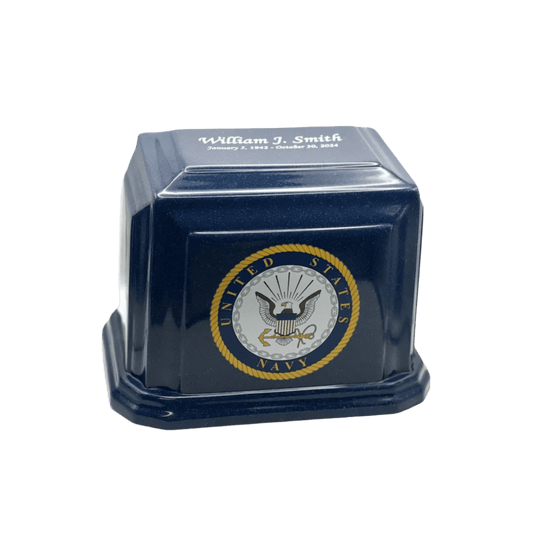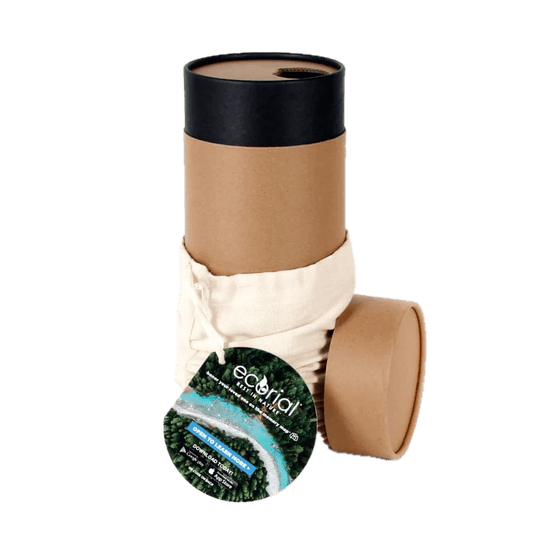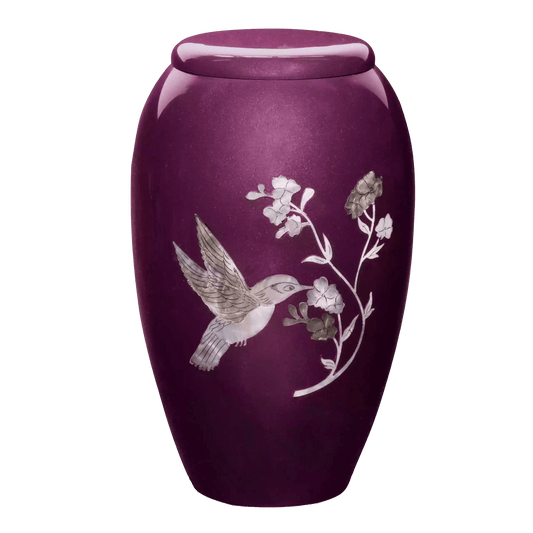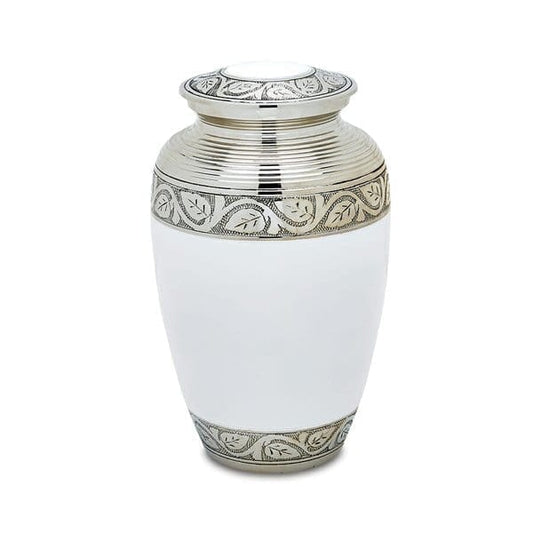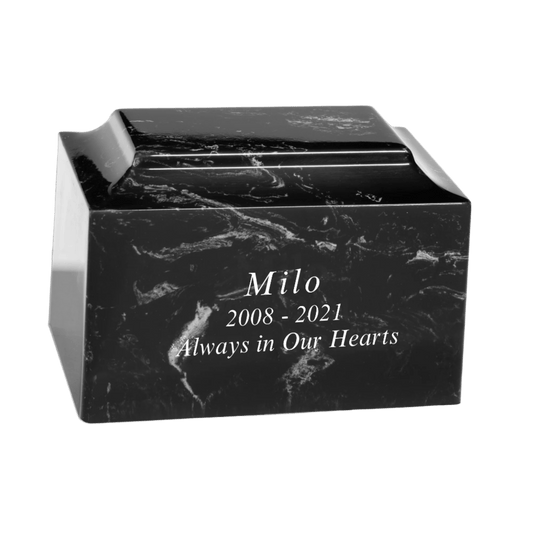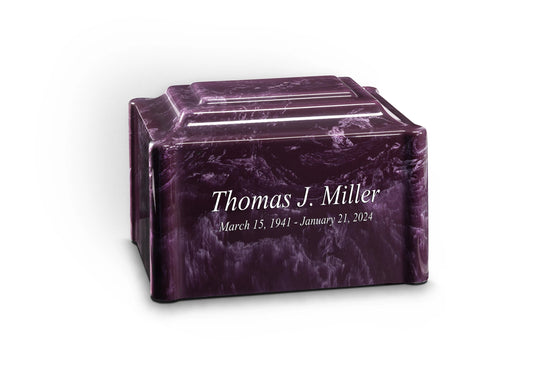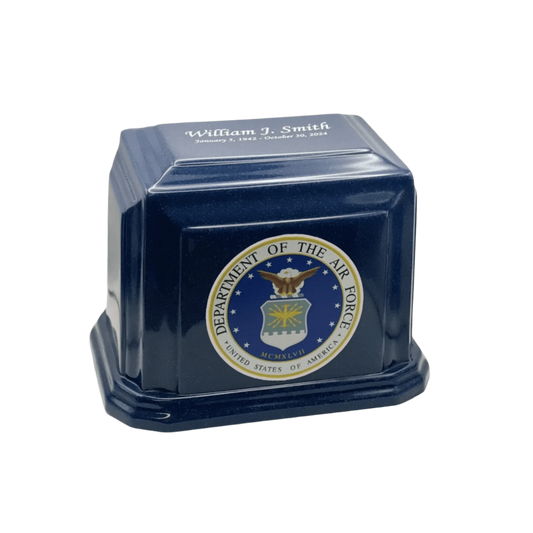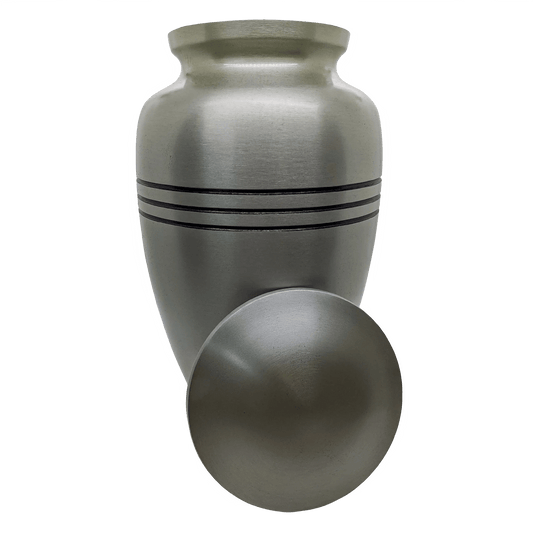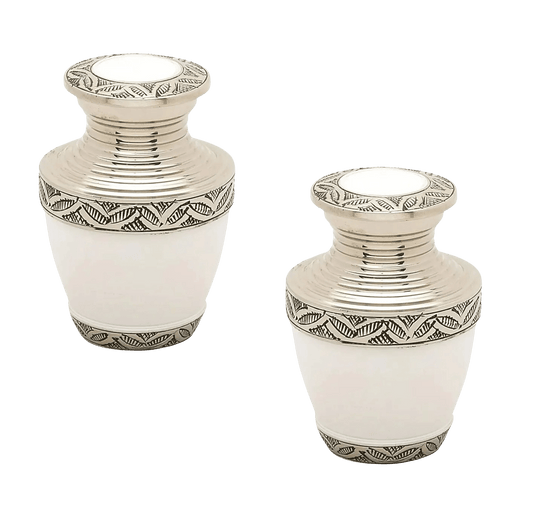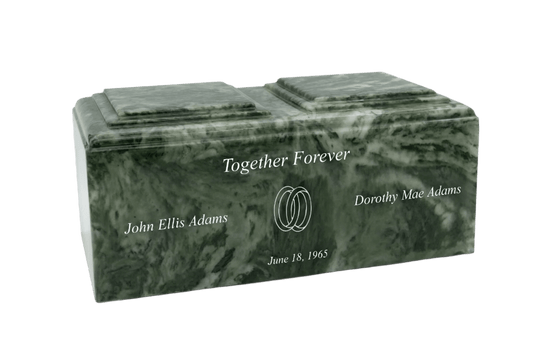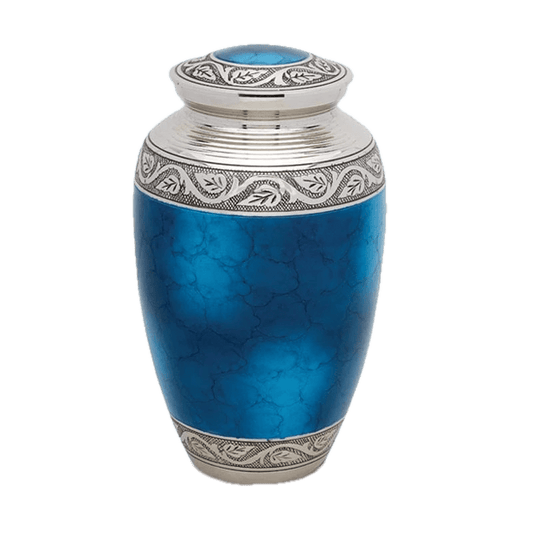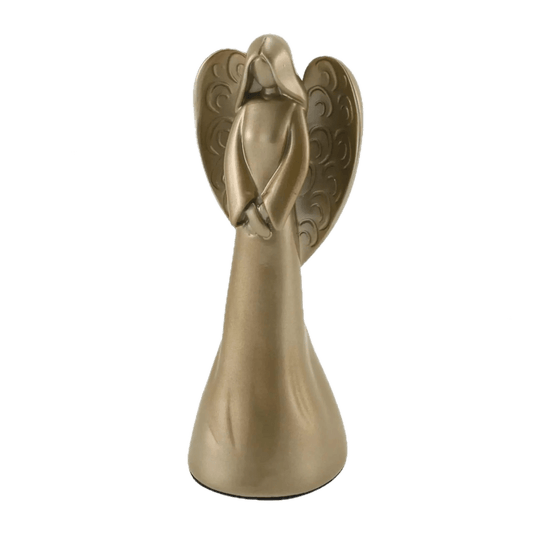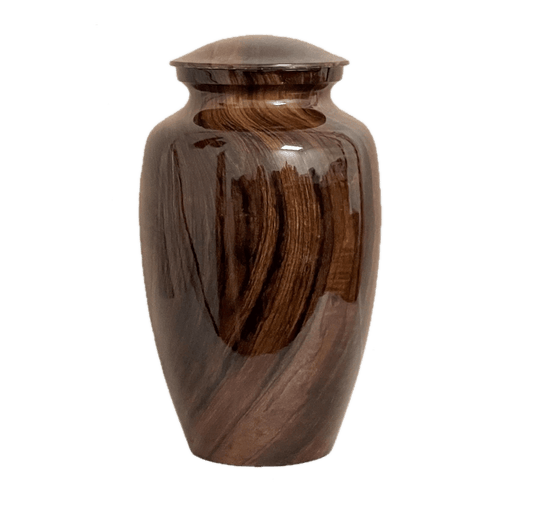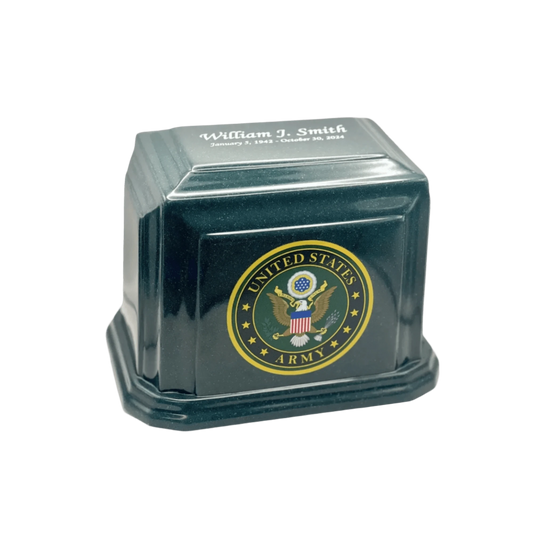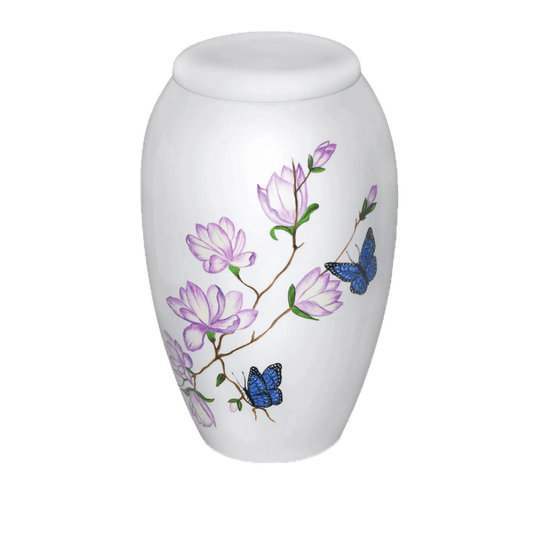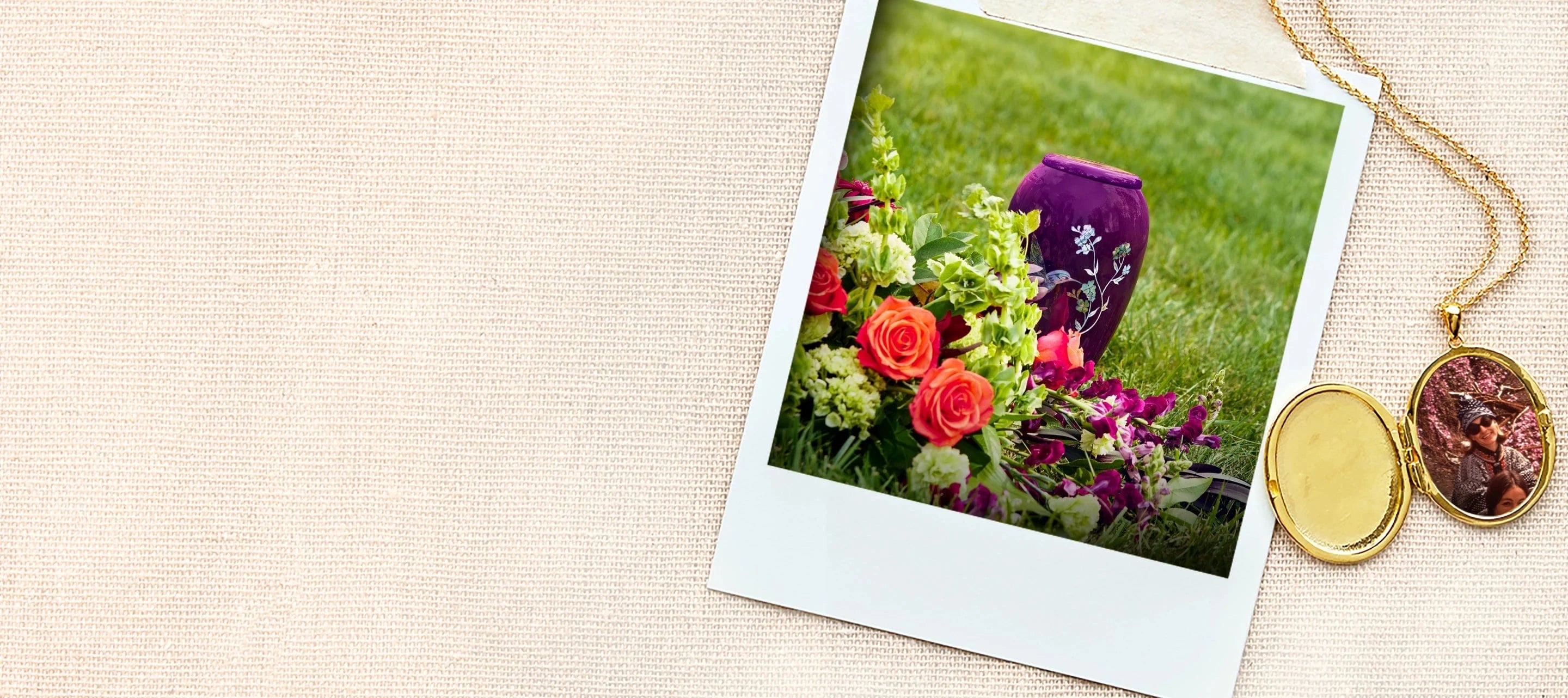
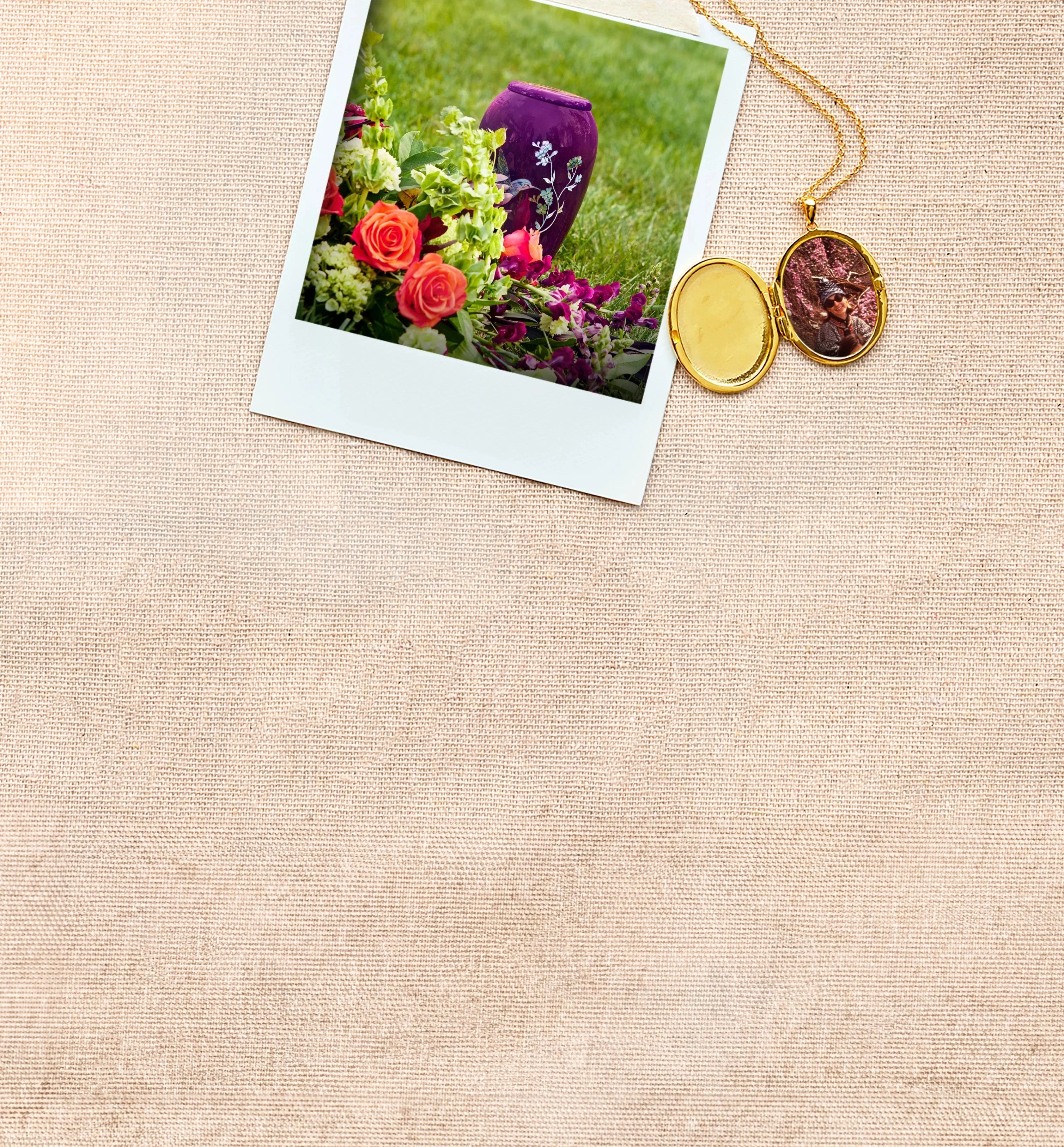
Shop Cremation Urns For Sale
- Expertly crafted, unexpectedly affordable
- Accepted in 100% of funeral homes
- Hands on 1:1 support from our team
- Free standard shipping
- All Urns
- Granite
- Marble
- Wood
- Military Urns
- For Burial
- Scattering Urns
- Brass
- Designer
- XL / Companion
- Cremation Caskets
- All Urns
- Granite
- Marble
- Wood
- Military Urns
- For Burial
- Scattering Urns
- Brass
- Designer
- XL / Companion
- Cremation Caskets
-
-
Simplicity Scattering Urn
No reviews -
Designer Urn - Burgundy Hummingbird
7 reviews -
Brass Urn - White
No reviews -
Paramount Azure Keepsake Urn
No reviews -
Black Marble Pet Cremation Urn
No reviewsFree shippingRegular price From $149Regular priceUnit price / per -
Merlot Cultured Marble Cremation Urn
1 review -
-
Cremation Urn - Silver (Pewter)
23 reviewsOut of Stock Free shippingRegular price $119Regular priceUnit price / per -
Pair of Keepsake Urns - White
1 review -
Verde Companion Marble Urn
14 reviews -
Brass Urn - Blue
No reviews -
Angelina Silver Bronze Keepsake Urn
11 reviews -
-
Hand Painted Urns - Butterfly Landing
3 reviews
Cremation Urns for Ashes – Made with Thought, Selected with Care
Choosing an urn for a loved one is never merely about the piece — it's about the memories it carries and the life that it embodies. Our selection of cremation urns for ashes gathers pieces that are stunning, well-made, and designed to endure. From the sophistication of marble to the warmth of wood, the metallic gleam, or the gentle return to nature in biodegradable designs, every urn in this collection is carefully selected.
We know it can be intimidating to find the appropriate urn. That's why we've categorized our urns so you can browse by style, size, or function, and discover something that feels right for you and your loved ones.
Shop by Style
Eco-Friendly Urns – Easy on the planet, constructed from biodegradable materials, ideal for green funerals or scattering ceremonies.
Marble Urns – Sophisticated and classic, with natural veining creating a one-of-a-kind piece.
Floral Urns – Delicate, decorative patterns for a warm and cozy memorial.
Military Urns – Remembering service members and veterans with emblem and insignia choices.
Modern Urns – Minimalist designs for a modern memorial appearance.
Religious Urns – Inspirational designs based on religion and spiritual symbols.

Shop by Size
Standard Urns – Single adult urns, generally 200 cubic inches.
Keepsake Urns – Miniature urns for dividing ashes among family members or keeping a small memento nearby.
XL / Companion Urns – For two people or added room for mementos alongside ashes.
Specialty Collections
Companion Urns – For couples or loved ones who wish to remain together, always.
Urns for Burial – Durable, ideal for placement in a cemetery.
Urns for Scattering – Scattering ceremony urns with convenient open-and-close functionality.
Solidified Remains – A distinctive method of remembering, solidifying ashes into keepsake form.
Premium Urns – Detailed finishes and high-quality materials for a permanent statement.
Accessories – Engravings, name plates, and display pieces to make your urn personal.
Why Choose Titan Casket for Your Urn
Each of our urns meets Titan's quality and craftsmanship standards. Several can be engraved with custom text or emblems that make them entirely unique. We're here to assist you in your decision, provide guidance, and ensure the experience is as effortless and caring as possible — so you can focus on celebrating your loved one in a way that resonates.
Frequently Asked Questions About Cremation Urns
Q: How long do human ashes last in an urn?
A: When stored in a sealed, high-quality urn, ashes can last indefinitely. Materials like metal or marble provide the best long-term protection, while biodegradable urns will naturally break down over time if exposed to moisture or buried.
Q: What is the average cost of a cremation urn?
A: Cremation urn prices vary by material, size, and design. At Titan Casket, our urns start at $59 for simple designs and can go up to several hundred dollars for premium or custom-made options.
Q: Do you put ashes directly in an urn?
A: Yes, ashes can be placed directly into an urn, often within a protective bag.
Q: What is an urn?
A: An urn is a container designed to hold the cremated remains of a loved one. They come in many styles, materials, and sizes, each offering a unique way to honor and remember.
Q: How far does an urn have to be buried?
A: Burial depth for urns can depend on cemetery regulations, but a common guideline is at least 18–24 inches from the top of the urn to the ground surface.
Q: How to display an urn in your home?
A: Many families place urns in a special location, such as a mantel, shelf, or memorial cabinet. Choose a spot that feels meaningful and safe from potential damage.

![Upgrade to Premium Weight [18-gauge steel]](http://titancasket.com/cdn/shop/products/casketthicknesswithnumbers.png?v=1680642906&width=533)

